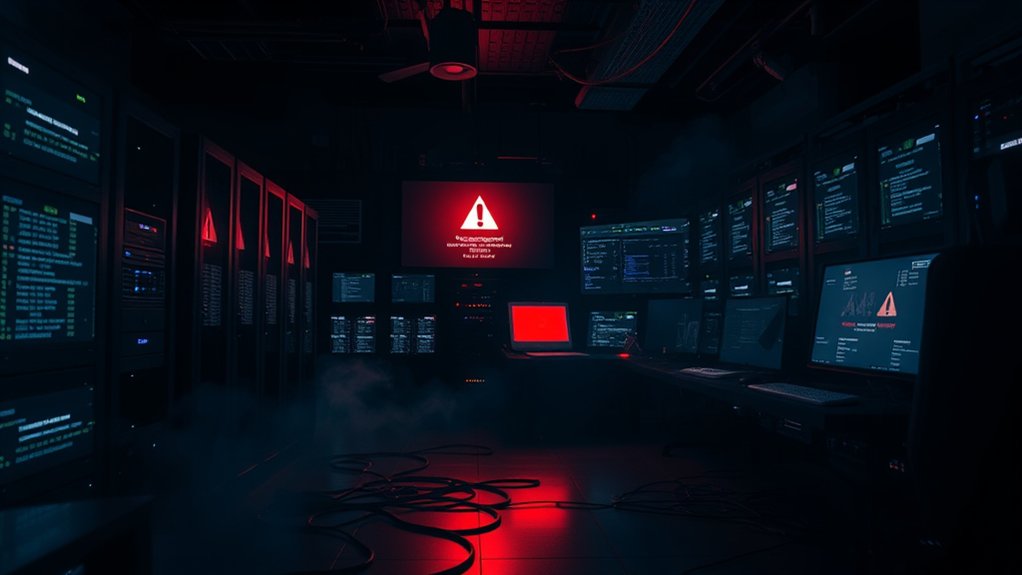Ransomware’s impact on organizations worldwide has increasingly drawn attention to the complex networks facilitating these cybercrimes, particularly the middlemen who operate in the shadows. These intermediaries play a vital role in the ransom payment process, acting as facilitators between victims and ransomware gangs. They often serve as escrow agents, holding encrypted funds during transactions as they negotiate demands with attackers to guarantee that payments are released only after obligations are met. This dual role improves the operational security for both parties involved, allowing the perpetrators to evade detection and the victims to engage with a semblance of legitimacy.
The shadowy middlemen in ransomware schemes serve as crucial facilitators, enhancing security and negotiating ransom payments between victims and attackers.
Operating under the guise of legitimate businesses such as digital forensics and incident response firms, cyber insurance companies, and law firms, middlemen navigate a precarious legal environment. They are subject to anti-money laundering (AML) regulations and are required to file suspicious activity reports (SARs) when involved in ransom-related payments. Failure to comply with guidelines from the Financial Crimes Enforcement Network (FinCEN) or the Office of Foreign Assets Control (OFAC) could result in significant penalties, alongside the risks of unintentional associations with sanctioned entities. Ransomware gangs frequently utilize sophisticated methods to ensure the success of their operations, making the role of these middlemen even more crucial. Additionally, the top sectors targeted by these attacks include government and healthcare, indicating the widespread nature of ransomware threats.
The recent global crackdown led by agencies like the U.S. Secret Service illustrates the escalating efforts to target these middlemen. Investigations have highlighted their integral role within ransomware-as-a-service (RaaS) ecosystems, where they assist in brokering access to victim networks and providing critical infrastructure like VPNs and hosting.
Law enforcement authorities have successfully seized millions in assets from intermediaries, employing technical experts to disrupt these criminal networks.
Consequently, the ongoing scrutiny has prompted both legal and operational challenges for these intermediaries. Their involvement in criminal transactions raises legal liabilities, while the fear of reputational damage looms large. The increased reporting requirements for financial institutions worldwide exemplify a stringent adaptation of industry practices, aiming to combat the ripple effects of ransomware activities and dismantle their financial incentives.









